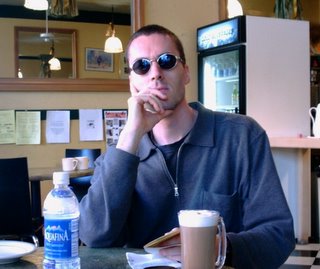Last week’s Sunday’s New York Times had a long article about the redesign of business school’s curriculum over the last years by incorporating critical theory into is obligatory learning study plan. It’s not a surprise that executive managers have realized that teaching pure business theory and practice is not sufficient to develop great managers. Critical thinking, either taught in the legal or the humanities field, is becoming a more and more essential element of any management executive’s mental skill set. Whoever learned to read and understand literary theorist like Derrida or Foucault or the legal intricacies of some critical landmark decisions will not be easily intimidated by complex business and marketing problems.
Additionally the ten year anniversary of the Time Warner/AOL merger demonstrates once more that human beings behave just too often as pure followers who don’t stop and question the basic assumptions, processes, and behaviors that seem normal in all organizations. Understanding critical theory can help anyone to be more conscious and reflective within any discussion.
On the other hand critical thinking in its extreme form can be an impediment of thriving in any organizations. Young managers in the US (the famous Millennials ) seem to have more challenges to merge the necessary critical thinking with a team player behavior that can require following decisions by a superior that contradict the critical thought process of the young manager. But most profit oriented organization can not function as a democratic structure with equal voting rights, they rely and require a certain hierarchical structure and command chain. The dilemma arrives when young managers don’t know when to apply their critical thinking skills and fight for the related thought results, and when to follow the directions of a more experienced and senior manager.
This growing dilemma in most marketing organizations with a higher percentage of millennial managers requires a few explorations:
- Every significant decision requires the application of critical thinking. The critical thinking should be consciously utilized within the rules and confines of the particular business discourse and outside of the discourse. It seems challenging for a lot of young managers to realize when one argues within and when outside the terminology, rules, and logic of a particular discourse and organization.
- Critical thinking is not a genetic disposition but the result of continuous studying and learning. It is rooted in information and insight based curiosity and skepticism that behaves like a never ending stress test of any available options.
- It is important to respect the chain of command in a particular organization. At the same time any organization should provide sufficient space that any young manager can voice his or her thought process, observations, and objections. But as long as the decision does not call for illegal actions, is unethical, or discriminates anyone, the ultimate decision (after hopefully a sufficient long period of discussion and potential disagreement) should be supported by the involved team members. This seems to be a given but it is a bigger challenge than expected.
The balance between the appropriate application and articulation of critical thinking and team player behavior is more fragile than most of us believe. It will be interesting to see how the young generation will cope with the simultaneous development of stronger and smarter critical thinking while developing a team behavior that makes any organization stronger.

